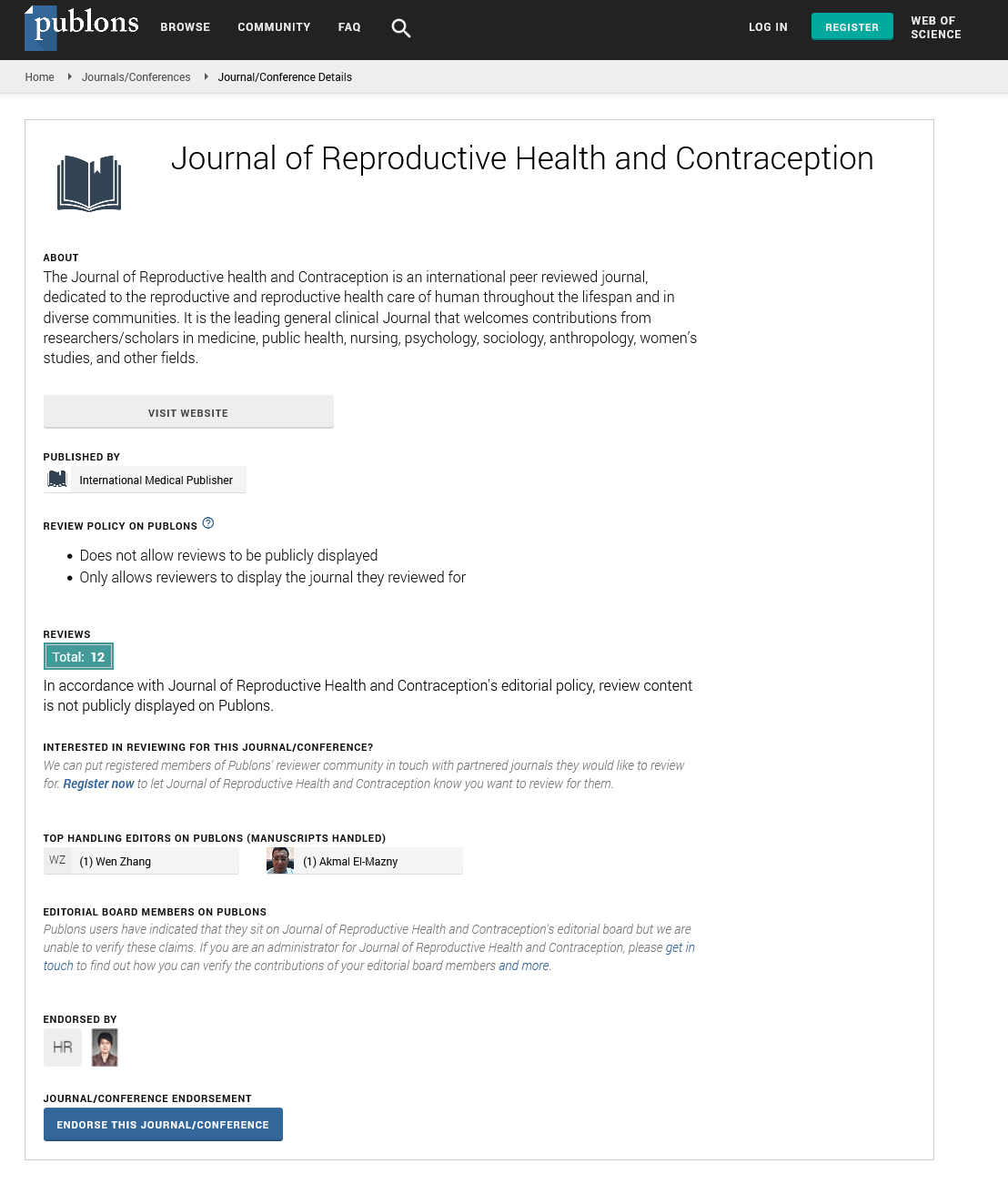ISSN : 2471-9749
Journal of Reproductive Health and Contraception
Female genital mutilation in Sudan: Different perspectives
International Congress on Midwifery and Maternal Health
October 13, 2022 | Webinar
Samia Mahdi Ahmed
Sudan University of Science and Technology, Saudi Arabia
ScientificTracks Abstracts: J Contracept Stud
Abstract
Female genital mutilation (FGM) or female circumcision comprises all procedures that include partial or total removal of the external female genitalia, or other damage to the female genital organs for non-medical reasons. FGM is still widely practiced in Sudan; it is a cultural rather than religious practice. It has many complications especially for those who developed with disorders of sexual development. Complications may include bleeding, urinary tract infection, septicaemia, urine retention, major wound sepsis, psychological problems and others. Thus, more efforts should be exerted to help in eradication of FGM; these could be through workshops, social media, and information media. Moreover, psychological assessment and treatment could be offered to those victims with female genital mutilation.
Biography
Dr. Samia Mahdi Ahmed had a BSc degree in Medical Laboratories, Sudan University of Science and Technology, in October 1997. She holds a master degree in Clinical Biochemistry (in 2000) and Ph.D. in Clinical Genetics (in 2007).She has a teaching experience since graduation in Sudan University of Science and Technology till 2012, and up to date in Taliban University in Medina (Saudi Arabia). She worked in other universities (part time) in Sudan. She was attended more than 40 training courses and workshops in her field. She is a member of editorial board for 5 journals and a reviewer for 10 journals. She has 2 publications and contributed in other 26 publications. She acted as an external examiner for undergraduates and MSc students in universities in Sudan. She was supervised 22 MSc students and was a co-supervisor for 4 Ph.D. students.
Google Scholar citation report
Citations : 201
Journal of Reproductive Health and Contraception received 201 citations as per Google Scholar report
Journal of Reproductive Health and Contraception peer review process verified at publons
Abstracted/Indexed in
- Google Scholar
- China National Knowledge Infrastructure (CNKI)
- WorldCat
- Publons
Open Access Journals
- Aquaculture & Veterinary Science
- Chemistry & Chemical Sciences
- Clinical Sciences
- Engineering
- General Science
- Genetics & Molecular Biology
- Health Care & Nursing
- Immunology & Microbiology
- Materials Science
- Mathematics & Physics
- Medical Sciences
- Neurology & Psychiatry
- Oncology & Cancer Science
- Pharmaceutical Sciences
